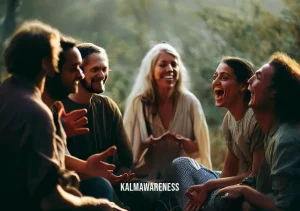20 Minutes of Meditation a Day: A Daily Prescription for Serenity
If you find yourself constantly struggling to maintain mental equilibrium in today’s fast-paced, stress-filled world, meditation might just be the lifeline you’ve been seeking. Enter the concept of “20 minutes of meditation a day,” a simple yet transformative practice that can drastically shift your perspective and pave the way to tranquility.
This isn’t an arcane ritual from antiquity or an exclusive skill meant for spiritual gurus—it’s a science-backed method for maintaining peace, clarity, and balance. Many people ask, “What can be achieved in just 20 minutes?” Well, as we will explore, those few minutes can unlock a world of benefits. But before we delve into the magic of these 20 minutes, let’s put on our mindful caps.
Why 20 Minutes?
The magic number ’20’ didn’t just emerge out of thin air. This timeframe is rooted in scientific observations about the human brain and how it responds to meditation. Studies show that the brain begins to enter an altered state of consciousness after approximately 20 minutes of consistent focus or relaxation—precisely what we aim for during meditation.
This is often referred to as “the zone” in mindful psychology, a state of flow where you are fully engaged in the present moment, neither fixating on the past nor anxious about the future. It’s here that the transformative effects of meditation truly come to light.
Benefits of 20 Minutes of Meditation a Day
Let’s explore some of the profound changes you can expect from just 20 minutes of daily meditation:
- Reduced stress and anxiety: Studies have found that regular meditation helps reduce levels of cortisol—the body’s primary stress hormone.
- Improved focus and cognition: Regular practitioners often report enhanced concentration, clarity of thought, and improved memory.
- Emotional well-being: With consistent practice, you’re likely to experience heightened self-awareness, better emotional regulation, and increased empathy and compassion.
- Better physical health: Stress and anxiety can lead to a slew of physical health problems. By mitigating these, meditation can potentially reduce blood pressure, improve sleep, and boost immunity.
- Enhanced self-care: Taking 20 minutes for yourself each day is a powerful act of self-care. It shows that you value yourself enough to reserve time exclusively for your mental and emotional well-being.
Now that we’ve explored the potential benefits, let’s look at how to incorporate this into your daily routine. Remember, consistency is key in building mindful skills.
Incorporating 20 Minutes of Meditation Into Your Day
Start by setting a regular time for your meditation. This could be first thing in the morning, during your lunch break, or right before bed—whatever works best for you. Once you’ve chosen a time, stick to it. Make this non-negotiable ‘me’ time.
Next, find a comfortable space where you won’t be interrupted. This could be a quiet room, a peaceful corner of your garden, or even a park. Make sure you’re seated comfortably—you don’t want physical discomfort to distract you from your practice.
For beginners, using a guided meditation can be helpful. There are various resources available, such as the mindful center, where you can find guided meditations tailored to different needs and experience levels.
And finally, remember to be patient with yourself. If your mind wanders (and it will), gently bring your focus back to your breath. It’s all part of the process.
To fully appreciate the power of 20 minutes of meditation a day, think of it as training for your mind, akin to the way you might train your body at the gym. Each session helps you to build strength, resilience, and flexibility, all of which contribute to better overall mental wellness.
We invite you to continue on this path to serenity as we further delve into how you can maximize the benefits of your 20-minute daily meditation practice in the next part of this article. From understanding the nuances of a mindful quality to exploring the practical aspects of incorporating meditation into your daily routine, there’s a lot more to come.
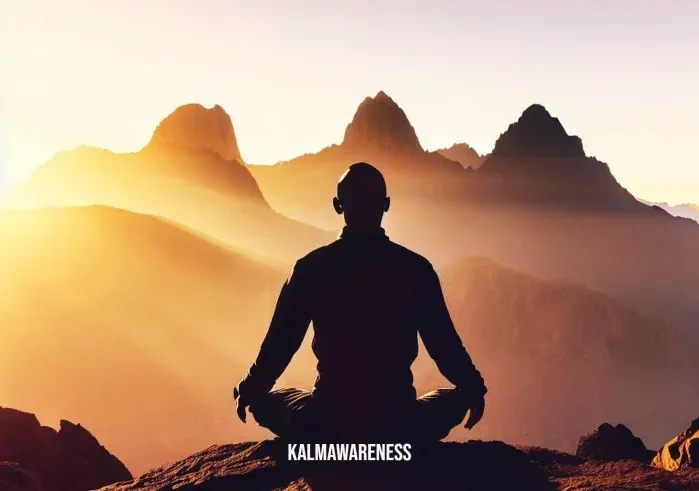
Deepening Your Practice: The Journey Beyond 20 Minutes of Meditation a Day
In the previous chapter, we outlined the fundamentals of setting up a consistent 20-minute daily meditation practice and briefly discussed its benefits. However, the journey doesn’t end here. To fully realize the transformative power of meditation, we need to delve deeper and uncover the ways to enhance our daily 20-minute practice. This involves understanding the concept of mindfulness how skills, various techniques to enrich your practice, and more.
Understanding Mindfulness: A Key to Deepening Meditation
Mindfulness is more than a buzzword. It’s a way of being, an approach to life that infuses every aspect of our existence. Simply put, mindfulness is being fully present, engaged in the moment, without judgment. This concept lies at the heart of meditation.
By integrating mindfulness into your daily life outside your 20-minute meditation, you can significantly deepen your practice. Here are three key ‘how skills’ to cultivate mindfulness as explained in our mindful essay:
- Taking a Non-judgmental Stance: This involves observing experiences without categorizing them as ‘good’ or ‘bad’. It’s about accepting reality as it is.
- Focusing on One Thing in the Moment: Instead of multitasking, give your full attention to whatever you’re doing. Whether you’re eating, walking, or just breathing, be fully present.
- Being Effective: Do what works. Act based on the demands of the situation, not on your personal likes or dislikes. Let go of unproductive habits or thoughts that hold you back.
Techniques to Enhance Your 20-Minute Meditation
Adding some variety to your meditation practice can make it more engaging and deepen your experience. Here are some techniques you can explore:
- Guided Meditation: Follow along with a guided meditation recording. You can find various guided meditations tailored to different needs and experience levels on our website at the mindful center.
- Loving-Kindness Meditation: This practice involves focusing on developing feelings of goodwill, kindness, and warmth towards others.
- Body Scan Meditation: Here, you’ll focus your attention on different parts of your body, from your toes to the crown of your head. This is great for increasing body awareness.
- Breath Awareness Meditation: This simple practice involves focusing solely on your breath—an effective method for training attention.
- Walking Meditation: This practice involves focusing on the sensation of walking. It can be a great way to incorporate meditation into your daily activities.
Experiment with Tools: Enhance Your Meditation
Beyond the techniques, using tools during your meditation can also significantly enhance your practice. Many of these tools have been used for centuries and have a rich history behind them. For instance, the Chinese therapy balls, also known as Baoding balls, are a useful tool to aid meditation.
Similarly, the sound frequency of 136.1 Hz, often associated with the ‘cosmic octave,’ is said to induce relaxation and tranquility. You can explore more about the 1361 Hz benefits in our detailed article.
| Tools for Meditation | Benefits |
|---|---|
| Chinese Therapy Balls | Improve dexterity, relaxes the mind |
| 1361 Hz Sound Frequency | Induces relaxation and tranquility |
| Candles | Creates a calming environment |
| Incense | Stimulates the senses, fosters a spiritual atmosphere |
Remember, meditation is a personal journey and there’s no one-size-fits-all. It’s about exploring and finding what works best for you.
In the next chapter, we will dive deeper into the science behind meditation and how it changes your brain. Additionally, we will explore how to deal with common challenges you might face during your daily 20 minutes of meditation. There’s so much more to discover in this journey towards a mindful life, so join us in the next part of the article.
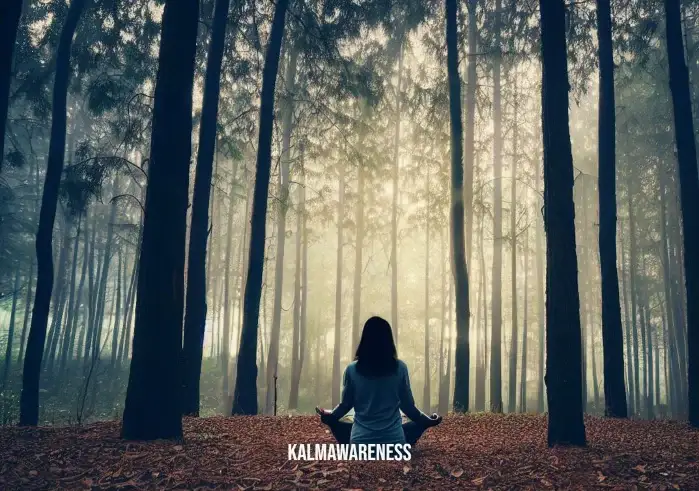
The Transformative Power of 20 Minutes of Meditation a Day: Science and the Art of Overcoming Challenges
In our exploration of the daily practice of 20-minute meditation, we’ve already established its foundational aspects and deepening practices. Now, it’s time to venture into the fascinating realm of the science behind meditation and how you can overcome the challenges that may arise during your practice. Let’s delve into this enlightening journey.
The Science Behind Meditation
Behind the tranquility of a 20-minute meditation, a day lies a flurry of neurological activities, transforming your mind in ways more profound than you might imagine. The meditation and brain fog connection is a testament to this transformative power.
The practice of daily meditation has been linked to changes in the brain’s structure and function, leading to numerous benefits. Studies have shown an increase in the thickness of the prefrontal cortex, an area associated with higher-order brain functions such as consciousness, decision-making, and problem-solving.
Moreover, it’s known to reduce activity in the “me center” of the brain, the default mode network (DMN), responsible for mind-wandering and self-referential thoughts. This could explain why meditation helps in reducing anxiety and stress.
As Jon Kabat-Zinn, a renowned mindfulness meditation teacher and founder of Mindfulness-Based Stress Reduction (MBSR), has eloquently said, “You can’t stop the waves, but you can learn to surf.” To learn more about his work, you can explore our Kabat-Zinn books collection.
Overcoming Challenges in Meditation
As you journey through your 20-minute meditation practice each day, you might encounter various challenges. Here are a few common ones and how to navigate them:
- Difficulty Concentrating: This is one of the most common challenges. Remember, meditation is not about eliminating thoughts, but observing them without judgment. Mindful meditation movement can be a helpful technique to manage this issue.
- Physical Discomfort: Ensure you are comfortable before you begin. You don’t have to sit in a traditional cross-legged posture; you can meditate while sitting on a chair or lying down.
- Feeling Sleepy: It’s common to feel sleepy if you’re meditating in a deeply relaxed state. Try sitting upright and maintaining a focused attention to stay awake.
- Impatience or Boredom: Sometimes, you might feel like nothing is happening or that you’re not making progress. Remember, the benefits of meditation come with regular practice over time. Be patient with yourself.
Michael Yellow Bird, a renowned mindfulness practitioner, advocates for mindfulness in overcoming life’s challenges. His inspiring quote, “Mindfulness is the key to unlocking the full potential of your mind,” beautifully encapsulates this sentiment. To learn more about his insights, visit our page on Michael Yellow Bird Mindfulness.
So, as you continue your journey of 20 minutes of meditation a day, remember to remain patient and committed to your practice. The next chapter will explore the broader impacts of this daily practice on various aspects of life, including relationships, productivity, and creativity. You’ll learn how this simple daily habit could be a catalyst for profound change in your life. So, we invite you to continue to the next part of the article to explore further.
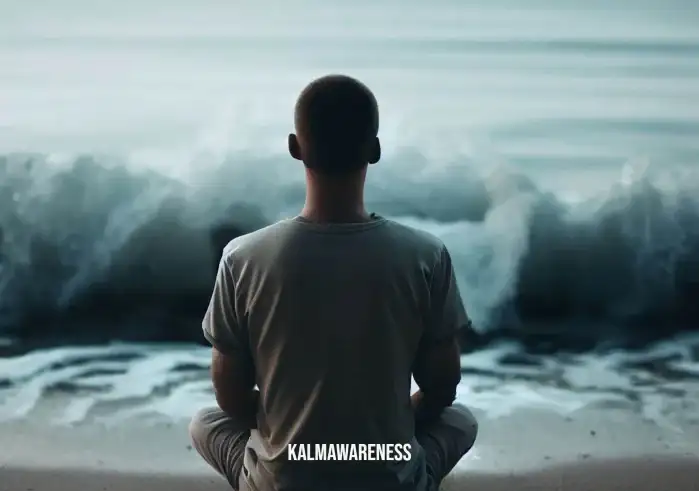
The Widespread Impact of 20 Minutes of Meditation a Day: Enhancing Relationships, Productivity, and Creativity
We have ventured into the fascinating science behind 20 minutes of meditation a day and how it helps overcome common challenges. Now, let’s broaden our perspective and explore how this transformative practice can positively impact our relationships, productivity, and creativity.
Enriching Relationships through Meditation
The ripple effects of daily meditation practice can significantly enhance our relationships. By cultivating mindfulness, we develop a better understanding of our emotions, fostering emotional intelligence.
Take a moment to ponder this profound quote from Thich Nhat Hanh, “The most precious gift we can offer others is our presence. When mindfulness embraces those we love, they will bloom like flowers.” Indeed, by being fully present with our loved ones, we foster deeper connections.
With increased emotional intelligence comes greater empathy and understanding towards others. It enables us to listen actively and respond thoughtfully, improving our interactions and strengthening our relationships. Check out our mindful life practice page for deeper insights.
Boosting Productivity through Meditation
You might wonder, how can taking time out for meditation every day contribute to productivity? Surprisingly, it does by improving focus and decision-making. Regular meditation practice can help manage work-related stress and prevent burnout, enhancing overall work performance.
Also, meditation can boost our ability to multitask efficiently. It enhances cognitive flexibility, allowing us to switch between tasks with ease and perform them more effectively. For those seeking to improve their productivity, mindful management can be a game-changer.
Unleashing Creativity through Meditation
The tranquility achieved during meditation can unleash our inner creativity. By quieting the mind, we open up a space for new ideas and insights to flow in. The practice can foster divergent thinking, a style of thinking that encourages creative ideas by exploring many possible solutions.
Think about this inspiring quote from Albert Einstein, “The intuitive mind is a sacred gift and the rational mind is a faithful servant. We have created a society that honors the servant and has forgotten the gift.” Daily meditation could be your path to reconnecting with this ‘sacred gift.’
Furthermore, by creating a state of relaxation, meditation can also help overcome creative blocks. For tips on incorporating mindfulness into your creative process, visit our page on the mindful way counseling.
| Aspect | Impact of 20 Minutes of Meditation a Day |
|---|---|
| Relationships | Enhances emotional intelligence, fostering empathy and deeper connections |
| Productivity | Improves focus, decision-making, and ability to multitask effectively |
| Creativity | Fosters divergent thinking and helps overcome creative blocks |
Indeed, the practice of 20 minutes of meditation a day can have far-reaching impacts on our lives, beyond mere stress reduction. It can enhance our interpersonal relationships, increase our productivity, and unleash our innate creativity. In the next chapter, we’ll delve deeper into how to sustain this powerful practice and the various resources available to aid your journey. Please continue to the next part of the article for this enlightening exploration.
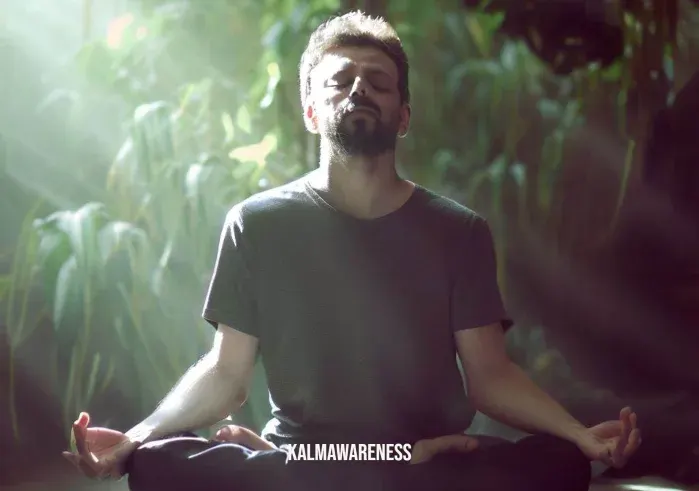
Cultivating a Sustained Practice of 20 Minutes of Meditation a Day: A Pathway to Continued Growth and Transformation
Having journeyed through the multifaceted benefits of dedicating 20 minutes of your day to meditation, we now arrive at the final leg of our exploration – how to cultivate and sustain this empowering practice in our daily lives. From understanding the challenges to uncovering the aids to consistent meditation, we will pave the way towards making 20 minutes of meditation a day a rewarding part of your life.
Understanding the Challenges to Regular Meditation
Despite its proven benefits, incorporating meditation into our daily routine can be challenging. Initially, you may find it difficult to set aside time or maintain focus. Rest assured, these are common obstacles that can be navigated with patience and perseverance. An insightful resource on this topic is the page on the Sitback Method Acronym on our site.
Aiding Consistency: Creating a Conducive Environment
To encourage regular practice, create a dedicated meditation space in your home. This space should be quiet, comfortable, and free of distractions. Having a specific location associated with meditation can help cultivate a routine. A few insights into creating such a space can be found in our mindful properties guide.
Using Guided Meditation Resources
Guided meditations are an excellent resource for beginners and seasoned meditators alike. They offer a structure to follow and provide gentle reminders to bring your attention back when the mind wanders. Resources like the Jon Kabat-Zinn Guided Body Scan can prove beneficial.
Participating in Meditation Groups
Joining a meditation group can also support your practice. Sharing your experiences and learning from others can be inspiring and encouraging. Learn more about the potential benefits on our group meditation benefits page.
Leveraging Mindfulness-Based Therapies
Lastly, if you’re dealing with specific issues such as stress, anxiety, or depression, mindfulness-based therapies can be beneficial. They combine traditional cognitive therapies with mindfulness techniques, offering a comprehensive approach to mental wellness. Our mindful therapy group southcenter page delves into this topic in more detail.
Remember, the journey towards making meditation a daily practice is unique for everyone. It’s about finding what works best for you and adapting along the way. It’s not always about achieving perfect tranquility or complete control over your thoughts, but rather about being present and accepting of the current moment.
Committing to 20 minutes of meditation a day is like planting a seed of peace and mindfulness in your life. With patience and consistent effort, this seed will grow into a tree, offering shade, tranquility, and nurturing fruits in your journey of self-growth and transformation.
As you continue to explore the enriching path of mindfulness and meditation, we invite you to discover more insights and resources on our site. Whether you’re interested in diving deeper into mindfulness techniques, learning about mindful living, or understanding the science behind these practices, our diverse collections and blog posts are here to guide and inspire. Best of luck on your journey, and we hope to continue being a part of your mindfulness exploration.

Welcoming A Brighter Tomorrow with 20 Minutes of Meditation a Day: Nurturing Resilience and Growth
We’ve come a long way in our exploration of how just 20 minutes of meditation a day can profoundly influence our lives. As we come to the final chapter of this journey, let’s delve into the long-term impacts of this practice. Let’s see how meditation fuels resilience, fosters personal growth, and prepares us for a brighter, more mindful future.
Sowing Seeds of Resilience
In a world where uncertainty is the only certainty, resilience is a vital trait. Regular meditation practice has been found to strengthen our resilience, helping us to remain calm and composed amidst life’s ups and downs. To learn more about resilience and its relevance in our lives, explore the wisdom shared by Andres Gonzales, a renowned mindfulness practitioner.
Fostering Personal Growth
Beyond resilience, 20 minutes of meditation a day also fuels personal growth. By fostering self-awareness, patience, and compassion, it shapes us into more mindful, empathetic individuals. Discover the power of self-kindness, an essential aspect of personal growth, in our inspiring article, The Power of Self-Kindness.
Preparing for a Brighter Future
When you cultivate a daily practice of meditation, you’re not just impacting your present — you’re shaping your future. Meditation equips you with the tools to lead a more mindful, intentional life, ultimately preparing you for a brighter, more fulfilling future. A great resource to understand the far-reaching impacts of mindfulness is A Year of Mindfulness.
Keeping the Flame Alive
Remember, the journey of mindfulness and meditation is a marathon, not a sprint. It’s about consistency and commitment, even when progress seems slow or challenges arise. So, as you embark on this transformative journey, be patient with yourself, celebrate the small victories, and most importantly, keep the flame of practice alive.
And with that, we conclude our immersive exploration into the practice of devoting 20 minutes a day to meditation. Through this journey, we hope you’ve gleaned valuable insights and feel inspired to cultivate or deepen your own meditation practice.
This is just the beginning. As you continue to navigate the path of mindfulness, we invite you to delve deeper into our extensive collection of articles and resources. Whether you’re interested in enhancing your meditation practice, understanding the science behind mindfulness, or exploring innovative mindfulness techniques, our expansive collections and insightful blog posts are your guides.
Here’s to a journey of mindfulness that’s as rewarding as it is enlightening. Here’s to 20 minutes of meditation a day that leads to a lifetime of growth, resilience, and peace. And here’s to continuing this journey together, with KalmAwareness as your companion. Happy meditating!




